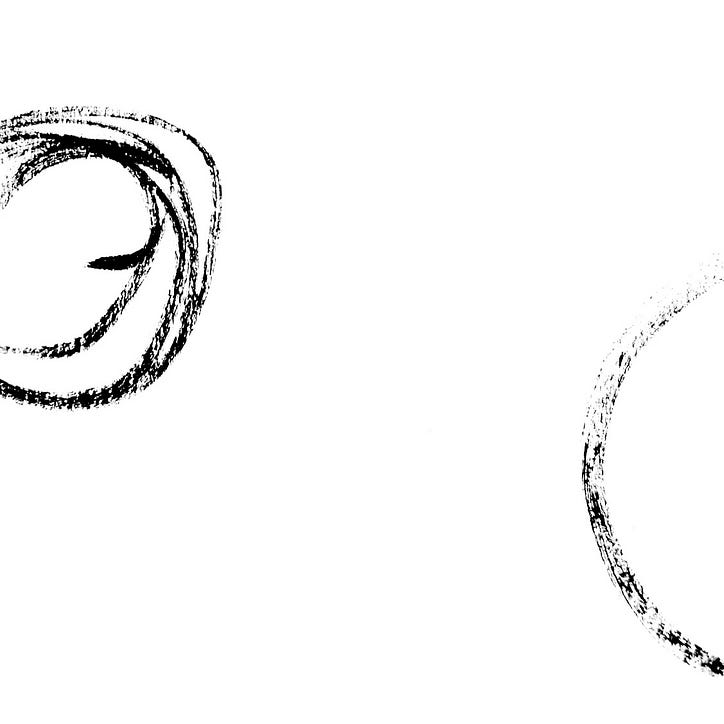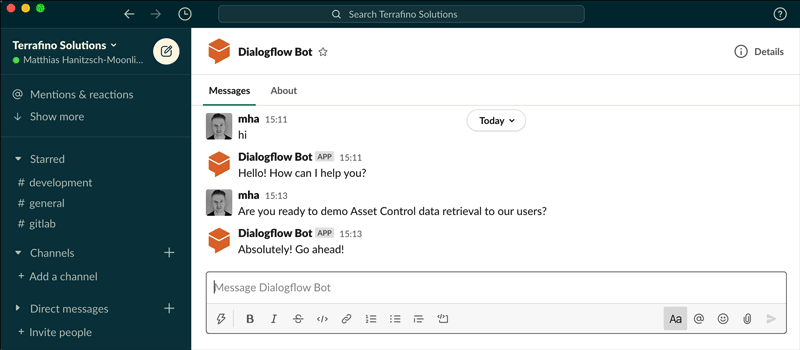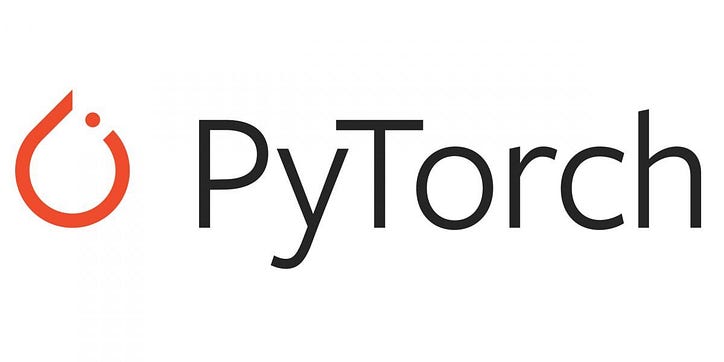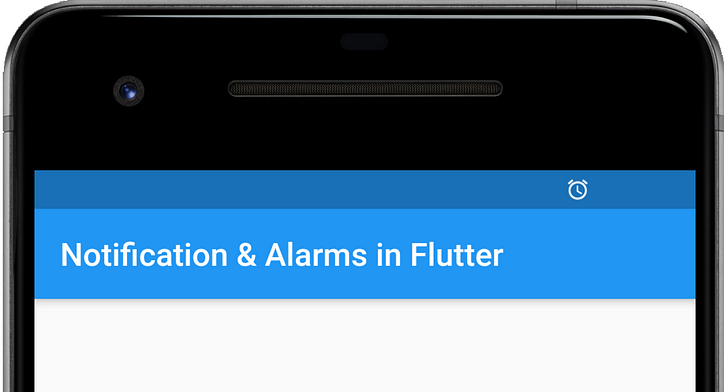ใช้ OpenAI (ChatGPT) ด้วย Golang
May 04 2023
ไลบรารีไคลเอนต์ My Go สำหรับ OpenAI API บทนำ Open AI เปิดเผย API ที่ใช้งานค่อนข้างง่าย ลูกค้าต้องลงทะเบียนรหัส API กับบัญชีบนเว็บไซต์ของตน และส่งรหัส API ในส่วนหัวการรับรองความถูกต้องของผู้ถือ
ไลบรารีไคลเอนต์ My Go สำหรับ OpenAI API

การแนะนำ
Open AI เปิดเผย API ที่ใช้งานค่อนข้างง่าย ลูกค้าต้องลงทะเบียนรหัส API กับบัญชีบนเว็บไซต์ของตน และส่งรหัส API ในส่วนหัวการรับรองความถูกต้องของผู้ถือ
สามารถดูเอกสารประกอบสำหรับ API ได้ที่ ลิงค์นี้
ด้วยเหตุนี้ฉันจึงได้สร้างแพ็คเกจเพื่อนำวิธีการของมันไปใช้ ฉันจะอธิบายการ ใช้งานที่นี่ แต่สามารถดูแพ็คเกจแบบเต็มได้ที่ลิงก์ GitHub นี้
โปรดอย่าลังเลที่จะมีส่วนร่วมและใช้มัน
การพัฒนา
การเรียกต้องใช้คีย์ API และคุณอาจต้องการระบุ ID องค์กรด้วย ดังนั้นก่อนอื่น เราต้องสร้างอินสแตนซ์ไคลเอ็นต์:
type Client struct {
apiKey string
Organization string
}
// NewClient creates a new client
func NewClient(apiKey string, organization string) *Client {
return &Client{
apiKey: apiKey,
Organization: organization,
}
}
// Post makes a post request
func (c *Client) Post(url string, input any) (response []byte, err error) {
response = make([]byte, 0)
rJson, err := json.Marshal(input)
if err != nil {
return response, err
}
resp, err := c.Call(http.MethodPost, url, bytes.NewReader(rJson))
if err != nil {
return response, err
}
defer resp.Body.Close()
response, err = io.ReadAll(resp.Body)
return response, err
}
// Get makes a get request
func (c *Client) Get(url string, input any) (response []byte, err error) {
if input != nil {
vals, _ := query.Values(input)
query := vals.Encode()
if query != "" {
url += "?" + query
}
}
resp, err := c.Call(http.MethodGet, url, nil)
if err != nil {
return response, err
}
defer resp.Body.Close()
response, err = io.ReadAll(resp.Body)
return response, err
}
// Call makes a request
func (c *Client) Call(method string, url string, body io.Reader) (response *http.Response, err error) {
req, err := http.NewRequest(method, url, body)
if err != nil {
return response, err
}
req.Header.Add("Authorization", "Bearer "+c.apiKey)
req.Header.Add("Content-Type", "application/json")
if c.Organization != "" {
req.Header.Add("OpenAI-Organization", c.Organization)
}
client := &http.Client{}
resp, err := client.Do(req)
return resp, err
}
import (
"encoding/json"
)
const COMPLETIONS_URL = "https://api.openai.com/v1/chat/completions"
type CreateCompletionsRequest struct {
Model string `json:"model,omitempty"`
Messages []Message `json:"messages,omitempty"`
Prompt StrArray `json:"prompt,omitempty"`
Suffix string `json:"suffix,omitempty"`
MaxTokens int `json:"max_tokens,omitempty"`
Temperature float64 `json:"temperature,omitempty"`
TopP float64 `json:"top_p,omitempty"`
N int `json:"n,omitempty"`
Stream bool `json:"stream,omitempty"`
LogProbs int `json:"logprobs,omitempty"`
Echo bool `json:"echo,omitempty"`
Stop StrArray `json:"stop,omitempty"`
PresencePenalty float64 `json:"presence_penalty,omitempty"`
FrequencyPenalty float64 `json:"frequency_penalty,omitempty"`
BestOf int `json:"best_of,omitempty"`
LogitBias map[string]string `json:"logit_bias,omitempty"`
User string `json:"user,omitempty"`
}
func (c *Client) CreateCompletionsRaw(r CreateCompletionsRequest) ([]byte, error) {
return c.Post(COMPLETIONS_URL, r)
}
func (c *Client) CreateCompletions(r CreateCompletionsRequest) (response CreateCompletionsResponse, err error) {
raw, err := c.CreateCompletionsRaw(r)
if err != nil {
return response, err
}
err = json.Unmarshal(raw, &response)
return response, err
}
type CreateCompletionsResponse struct {
ID string `json:"id,omitempty"`
Object string `json:"object,omitempty"`
Created int `json:"created,omitempty"`
Model string `json:"model,omitempty"`
Choices []struct {
Message struct {
Role string `json:"role,omitempty"`
Content string `json:"content,omitempty"`
} `json:"message"`
Text string `json:"text,omitempty"`
Index int `json:"index,omitempty"`
Logprobs interface{} `json:"logprobs,omitempty"`
FinishReason string `json:"finish_reason,omitempty"`
} `json:"choices,omitempty"`
Usage struct {
PromptTokens int `json:"prompt_tokens,omitempty"`
CompletionTokens int `json:"completion_tokens,omitempty"`
TotalTokens int `json:"total_tokens,omitempty"`
} `json:"usage,omitempty"`
Error Error `json:"error,omitempty"`
}
// Error is the error standard response from the API
type Error struct {
Message string `json:"message,omitempty"`
Type string `json:"type,omitempty"`
Param interface{} `json:"param,omitempty"`
Code interface{} `json:"code,omitempty"`
}
type Message struct {
Role string `json:"role,omitempty"`
Content string `json:"content,omitempty"`
}
ด้านล่างนี้คือตัวอย่างวิธีที่คุณเรียกใช้เมธอดนี้ (ใช้วิธีอื่นที่ลิงค์แพ็คเกจในบทนำ)
package main
import (
"fmt"
"os"
"github.com/franciscoescher/goopenai"
)
func main() {
apiKey := os.Getenv("API_KEY")
organization := os.Getenv("API_ORG")
client := goopenai.NewClient(apiKey, organization)
r := goopenai.CreateCompletionsRequest{
Model: "gpt-3.5-turbo",
Messages: []goopenai.Message{
{
Role: "user",
Content: "Say this is a test!",
},
},
Temperature: 0.7,
}
completions, err := client.CreateCompletions(r)
if err != nil {
panic(err)
}
fmt.Println(completions)
/* Response should be like this
{
"id": "chatcmpl-xxx",
"object": "chat.completion",
"created": 1678667132,
"model": "gpt-3.5-turbo-0301",
"usage": {
"prompt_tokens": 13,
"completion_tokens": 7,
"total_tokens": 20
},
"choices": [
{
"message": {
"role": "assistant",
"content": "\n\nThis is a test!"
},
"finish_reason": "stop",
"index": 0
}
]
}
*/
}
API_KEY=<your-api-key> API_ORG=<your-org-id> go run .















































![รายการที่เชื่อมโยงคืออะไร? [ส่วนที่ 1]](https://post.nghiatu.com/assets/images/m/max/724/1*Xokk6XOjWyIGCBujkJsCzQ.jpeg)